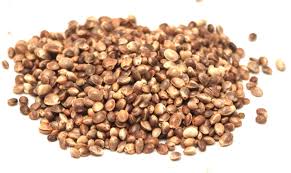
Diagnosed with Cancer? Your two greatest challenges are understanding cancer and understanding possible side effects from chemo and radiation. Knowledge is Power!
Learn about conventional, complementary, and integrative therapies.
Dealing with treatment side effects? Learn about evidence-based therapies to alleviate your symptoms.
Click the orange button to the right to learn more.
- You are here:
- Home »
- Blog »
- side effects ID and prevention »
- Blood Heart Health – Hemp, Flax
Blood Heart Health – Hemp, Flax

Recent studies, mostly in animals, have examined the effects of these fatty acids and dietary hempseed itself on platelet aggregation, ischemic heart disease and other aspects of our cardiovascular health.
Blood heart health is an important focus for me. Let’s get it out there at the outset. Hemp has little or no psychotropic effects. Trace amounts of T-H-C.
I am writing this post because I sustained two DVTs (blood clots) while undergoing chemotherapy and I live with chronic A-fib.
In short, I reached end-stage in September of 1997. I was diagnosed with chemotherapy-induced cardiomyopathy in late 2010. Blood heart health is a continuous effort for me.
In the ensuing years I’ve learned to rely on evidence-based but NON-TOXIC, non-conventional therapies. Many of these therapies are basic nutrition.
I am interested in any evidence-based, non-conventional therapy that can help me. According to the articles linked and excerpted below hemp is therapeutic but gets a bad rap because of its association with marijuana aka cannabis. After reading this post you should be more knowledgable about all things medical marijuana (and heart blood health) if you live in a state that supports medical marijuana.
Would you like to learn more about evidence-based, non-toxic therapies? Scroll down the page, post a question or comment and I will reply to you ASAP.
thank you,
David Emerson
- Cancer Survivor
- Cancer Coach
- Director PeopleBeatingCancer
Recommended Reading:
Omega-3 Fatty Acids-Anti-Cancer, Heart and Brain Healthy
The Top 9 Health Benefits of Flaxseed
- 1. Loaded with nutrients
- 2. High in omega-3 fatty acids
- 3. May help protect against cancer
- 4. Rich in fiber
- 5. May lower cholesterol levels
- 6. May reduce blood pressure
- 7. May stabilize your blood sugar levels
- 8. May help you manage your weight
- 9. Versatile and easy to use
Consume ground seeds instead of whole
Ground flaxseed is much easier to digest than whole flaxseed. That’s partly because your intestines are unable to break down the tough outer shell of whole seeds.
That said, you can still buy whole flaxseed, grind it in a coffee grinder, and store the ground flaxseed in an airtight container for easy use.
Hemp
“Although cannabis as a drug and industrial hemp both derive from the species Cannabis sativa and contain the psychoactive component tetrahydrocannabinol (THC), they are distinct strains with unique phytochemical compositions and uses.[6] Hemp has lower concentrations of THC and higher concentrations of cannabidiol (CBD), which decreases or eliminates its psychoactive effects.[6] ”
6 Evidence-Based Health Benefits of Hemp Seeds
- Hemp Seeds Are Incredibly Nutritious
- Hemp Seeds May Reduce Your Risk of Heart Disease
- Hemp Seeds and Oil May Benefit Skin Disorders
- Hemp Seeds Are a Great Source of Plant-Based Protein
- Hemp Seeds May Reduce Symptoms of PMS and Menopause
- Whole Hemp Seeds May Aid Digestion
The cardiac and haemostatic effects of dietary hempseed
“Despite its use in our diet for hundreds of years, hempseed has surprisingly little research published on its physiological effects. This may have been in the past because the psychotropic properties wrongly attributed to hemp would complicate any conclusions obtained through its study.
Hemp has a botanical relationship to drug/medicinal varieties of Cannabis. However, hempseed no longer contains psychotropic action and instead may provide significant health benefits.
Hempseed has an excellent content of omega-3 and omega-6 fatty acids. These compounds have beneficial effects on our cardiovascular health. Recent studies, mostly in animals, have examined the effects of these fatty acids and dietary hempseed itself on platelet aggregation, ischemic heart disease and other aspects of our cardiovascular health.
The purpose of this article is to review the latest developments in this rapidly emerging research field with a focus on the cardiac and vascular effects of dietary hempseed…”


